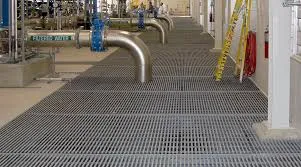
-
 Afrikaans
Afrikaans -
 Albanian
Albanian -
 Amharic
Amharic -
 Arabic
Arabic -
 Armenian
Armenian -
 Azerbaijani
Azerbaijani -
 Basque
Basque -
 Belarusian
Belarusian -
 Bengali
Bengali -
 Bosnian
Bosnian -
 Bulgarian
Bulgarian -
 Catalan
Catalan -
 Cebuano
Cebuano -
 China
China -
 China (Taiwan)
China (Taiwan) -
 Corsican
Corsican -
 Croatian
Croatian -
 Czech
Czech -
 Danish
Danish -
 Dutch
Dutch -
 English
English -
 Esperanto
Esperanto -
 Estonian
Estonian -
 Finnish
Finnish -
 French
French -
 Frisian
Frisian -
 Galician
Galician -
 Georgian
Georgian -
 German
German -
 Greek
Greek -
 Gujarati
Gujarati -
 Haitian Creole
Haitian Creole -
 hausa
hausa -
 hawaiian
hawaiian -
 Hebrew
Hebrew -
 Hindi
Hindi -
 Miao
Miao -
 Hungarian
Hungarian -
 Icelandic
Icelandic -
 igbo
igbo -
 Indonesian
Indonesian -
 irish
irish -
 Italian
Italian -
 Japanese
Japanese -
 Javanese
Javanese -
 Kannada
Kannada -
 kazakh
kazakh -
 Khmer
Khmer -
 Rwandese
Rwandese -
 Korean
Korean -
 Kurdish
Kurdish -
 Kyrgyz
Kyrgyz -
 Lao
Lao -
 Latin
Latin -
 Latvian
Latvian -
 Lithuanian
Lithuanian -
 Luxembourgish
Luxembourgish -
 Macedonian
Macedonian -
 Malgashi
Malgashi -
 Malay
Malay -
 Malayalam
Malayalam -
 Maltese
Maltese -
 Maori
Maori -
 Marathi
Marathi -
 Mongolian
Mongolian -
 Myanmar
Myanmar -
 Nepali
Nepali -
 Norwegian
Norwegian -
 Norwegian
Norwegian -
 Occitan
Occitan -
 Pashto
Pashto -
 Persian
Persian -
 Polish
Polish -
 Portuguese
Portuguese -
 Punjabi
Punjabi -
 Romanian
Romanian -
 Russian
Russian -
 Samoan
Samoan -
 Scottish Gaelic
Scottish Gaelic -
 Serbian
Serbian -
 Sesotho
Sesotho -
 Shona
Shona -
 Sindhi
Sindhi -
 Sinhala
Sinhala -
 Slovak
Slovak -
 Slovenian
Slovenian -
 Somali
Somali -
 Spanish
Spanish -
 Sundanese
Sundanese -
 Swahili
Swahili -
 Swedish
Swedish -
 Tagalog
Tagalog -
 Tajik
Tajik -
 Tamil
Tamil -
 Tatar
Tatar -
 Telugu
Telugu -
 Thai
Thai -
 Turkish
Turkish -
 Turkmen
Turkmen -
 Ukrainian
Ukrainian -
 Urdu
Urdu -
 Uighur
Uighur -
 Uzbek
Uzbek -
 Vietnamese
Vietnamese -
 Welsh
Welsh -
 Bantu
Bantu -
 Yiddish
Yiddish -
 Yoruba
Yoruba -
 Zulu
Zulu
fiberglass fitting
Fiberglass Fittings A Durable Solution for Modern Infrastructure
In the realm of construction and manufacturing, the choice of materials can greatly influence the durability, efficiency, and overall performance of any project. Among the versatile materials available today, fiberglass has emerged as a leading option, particularly in the production of fittings. Fiberglass fittings have gained popularity due to their numerous advantages, making them an excellent solution for a wide range of applications.
Fiberglass, a composite material made from fine glass fibers, is renowned for its strength-to-weight ratio. This means that fiberglass fittings are lighter than traditional materials, such as metal or PVC, without compromising on strength or durability. This attribute makes them easier to transport and install, which can lead to significant cost savings in labor and logistics. Additionally, the lightweight nature of fiberglass fittings reduces the overall weight of structures, contributing to improved load-bearing capacities and structural integrity.
One of the standout features of fiberglass fittings is their resistance to corrosion and chemical degradation. Unlike metal fittings that can rust or corrode over time when exposed to moisture or harsh chemicals, fiberglass is inherently resistant to these elements. This property allows fiberglass fittings to be used in various industries, including wastewater management, chemical processing, and marine applications, where exposure to corrosive substances is a constant concern. As a result, projects utilizing fiberglass fittings often benefit from reduced maintenance costs and extended service life.
fiberglass fitting

Moreover, fiberglass fittings are designed with flexibility in mind. They can be molded into a variety of shapes and sizes, allowing for customized solutions that meet specific project requirements. Whether in plumbing systems, electrical conduits, or structural applications, the adaptability of fiberglass fittings makes them a preferred choice for engineers and architects alike.
Thermal insulation is another key advantage of fiberglass fittings. They have excellent insulating properties, which help in managing temperature fluctuations and reducing energy costs in various applications. This feature is particularly beneficial in HVAC systems, where maintaining a stable temperature is essential for efficiency and comfort.
In terms of environmental impact, fiberglass fittings are less harmful than many traditional materials. Their long life cycle and resistance to degradation mean they contribute less to waste and pollution over time. Some manufacturers are also beginning to produce fiberglass fittings from recycled materials, further enhancing their sustainability profile.
In conclusion, fiberglass fittings represent a modern solution that combines durability, versatility, and efficiency. As industries continue to prioritize sustainability and cost-effectiveness, the adoption of fiberglass fittings is likely to increase. With their unique properties, these fittings are positioned to play a crucial role in the future of construction and infrastructure development, making them an essential consideration for any forward-thinking project.









